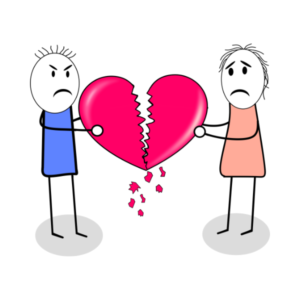Love is one of the most powerful and multifaceted emotions humans experience, but its meaning varies widely from person to person. While the concept of love is universal, how it is understood, felt, and expressed is deeply influenced by personal experiences. These experiences, shaped by family relationships, friendships, romantic encounters, cultural background, and personal growth, play a vital role in how we define and understand love.
In this article, we’ll explore how personal experiences shape individuals’ definitions of love, analyzing the different factors that contribute to these unique perspectives and offering examples to illustrate the process.
- Introduction
- The universality of love vs. individual interpretations.
- How personal experiences influence our understanding of love.
2. Early Family Relationships and Childhood Experiences
- The role of parents and family in shaping our early understanding of love.
- Examples of how childhood experiences influence love in adulthood.
3. Romantic Relationships: The Impact of Love and Heartbreak
- How romantic experiences define one’s perception of love.
- The role of positive and negative experiences in shaping future relationships.
4. Friendships and Platonic Love
- The importance of platonic relationships in defining love.
- How friendships influence emotional connection and support.
5. Cultural Background and Social Expectations
- How cultural norms shape individuals’ definitions of love.
- Examples of different cultural approaches to love and relationships.
6. Self-Love and Personal Growth
- How self-love influences our perception of love.
- The connection between self-awareness and how we define love.
7. Final Thought
- Why personal experiences create unique definitions of love.
- The importance of understanding diverse perspectives on love.
1. Introduction: The Universality of Love vs. Individual Interpretations
Love is a universal emotion, but how it is understood and experienced can vary greatly depending on personal history. Every person’s understanding of love is shaped by their life experiences, whether through their relationships with family members, romantic partners, or friends. What one person views as a deep emotional connection may differ significantly from another person’s definition of love, influenced by what they’ve encountered throughout their lives.
These varied experiences mean that love doesn’t have a single definition but rather takes on different forms for different people. By understanding how personal experiences shape these definitions, we can better navigate our relationships and empathize with others.
2. Early Family Relationships and Childhood Experiences
The Role of Parents and Family in Shaping Our Early Understanding of Love
Our earliest exposure to love typically comes from our family. The relationships we have with our parents or caregivers lay the foundation for how we understand love. If a child grows up in a household filled with warmth, affection, and emotional security, they are likely to carry those positive associations of love into adulthood. On the other hand, children who grow up in environments where love is conditional or absent may struggle to develop a healthy understanding of love.
Parents influence how love is expressed and received. Children learn how to give love by observing how their parents or caregivers express it, whether through words of encouragement, physical affection, or acts of kindness. If a parent is nurturing and emotionally available, the child may grow up believing that love is about care and support. Conversely, children raised in less affectionate households may come to view love as something earned or withheld.
Examples of How Childhood Experiences Influence Love in Adulthood
- Positive Experience: A child raised in a loving, stable household where affection is freely given may grow up believing that love should be unconditional, based on mutual respect and care.
- Negative Experience: A person raised in a family where love was withheld unless certain expectations were met may define love as something that requires constant validation and approval, making them wary of being vulnerable in relationships.
These early experiences set the stage for how love is perceived and expressed in adult relationships, shaping what individuals believe they deserve and expect from love.
3. Romantic Relationships: The Impact of Love and Heartbreak
How Romantic Experiences Define One’s Perception of Love
Romantic relationships play a key role in shaping how individuals define love. Positive romantic experiences often reinforce feelings of trust, intimacy, and emotional connection, allowing individuals to view love as something fulfilling and supportive. However, negative experiences, such as betrayal or heartbreak, can lead people to redefine love in ways that are more guarded or cautious.
When people experience their first love, they often develop new perspectives on emotional intimacy and connection. The thrill of falling in love can create feelings of excitement and passion, but when that love ends, it can shift their understanding of vulnerability and trust. How a person navigates the highs and lows of romantic relationships can significantly influence how they define love in the future.
The Role of Positive and Negative Experiences in Shaping Future Relationships
- Positive Experience: Someone who has had a supportive and fulfilling romantic relationship might view love as a partnership built on trust, communication, and mutual growth.
- Negative Experience: A person who has experienced betrayal or emotional manipulation may develop a more cynical or defensive view of love, believing that love can lead to pain or disappointment.
Romantic experiences, whether they end in heartbreak or happiness, teach us about our emotional needs, our boundaries, and what we want from our relationships. These lessons shape how we approach future partners and influence how we define love moving forward.
4. Friendships and Platonic Love
The Importance of Platonic Relationships in Defining Love
While romantic love often takes center stage in discussions about relationships, platonic love plays a crucial role in shaping how individuals define love. Friendships offer emotional support, trust, and loyalty without the complexities of romantic involvement, allowing individuals to experience love in its purest form. Platonic love teaches us about companionship, emotional intimacy, and the importance of being there for one another.
Strong friendships provide a foundation for emotional well-being and serve as a model for healthy, supportive relationships. These friendships can teach individuals that love is not only about romance but also about mutual respect, understanding, and care.
How Friendships Influence Emotional Connection and Support
- Positive Experience: A person with close, supportive friendships may define love as an emotional connection based on trust, loyalty, and shared experiences.
- Negative Experience: Someone who has experienced betrayal or abandonment in friendships may view love as conditional or fleeting, making them more hesitant to fully invest in new relationships.
Friendships provide an opportunity to practice love in ways that don’t rely on physical attraction or romantic intimacy, helping individuals develop a broader understanding of love.
5. Cultural Background and Social Expectations
How Cultural Norms Shape Individuals’ Definitions of Love
Culture plays a significant role in shaping how individuals define love. Each culture has its own expectations and norms about how love should be expressed, experienced, and valued. For example, some cultures may prioritize family love and communal support, while others may focus more on romantic love and individual choice.
In cultures that emphasize family loyalty and duty, individuals may define love as fulfilling responsibilities and supporting the family unit. In contrast, cultures that value individualism may encourage a more personal and emotional approach to love, where self-expression and personal happiness take precedence.
Examples of Different Cultural Approaches to Love and Relationships
- Western Cultures: In many Western cultures, love is often viewed through the lens of personal choice and emotional connection. Romantic love is typically seen as the foundation for marriage and long-term partnerships.
- Eastern Cultures: In contrast, many Eastern cultures emphasize the importance of family love and duty, where fulfilling familial responsibilities is seen as a key component of love.
Cultural differences influence how individuals view love’s role in their lives, affecting everything from how they approach relationships to what they expect from their partners.
6. Self-Love and Personal Growth
How Self-Love Influences Our Perception of Love
Self-love is a crucial aspect of how individuals define love. Those who have learned to practice self-love — by accepting themselves, setting boundaries, and prioritizing their own well-being — are often better equipped to build healthy, fulfilling relationships. When individuals have a strong sense of self-worth, they tend to view love as something that is mutually beneficial, rather than something they must earn or prove.
Self-love also influences how individuals give and receive love from others. People who have developed self-awareness and emotional resilience are more likely to engage in relationships that are balanced and respectful, where love is based on equality and care rather than dependency.
The Connection Between Self-Awareness and How We Define Love
- Positive Experience: Someone who has cultivated self-love may define love as a relationship where both partners are emotionally fulfilled and support each other’s personal growth.
- Negative Experience: Individuals who struggle with self-esteem may view love as something that requires constant validation, leading them to seek approval from others in order to feel worthy of love.
The journey toward self-love plays a significant role in shaping how people define love, influencing their expectations and experiences in relationships.
7. Final Thought : Why Personal Experiences Create Unique Definitions of Love
Love is a universal emotion, but how it is defined is unique to each individual. Personal experiences — from early family dynamics and friendships to romantic relationships and cultural influences — shape how we perceive and understand love. Whether love is seen as a source of emotional fulfillment, a duty to family, or a way to grow and connect with others, these definitions are deeply rooted in our personal histories.
By recognizing how personal experiences influence our definition of love, we can better navigate our relationships and build more meaningful connections with those around us. Understanding that love takes different forms for different people allows us to appreciate the diversity of love’s expression and the importance of empathy in all our relationships.




